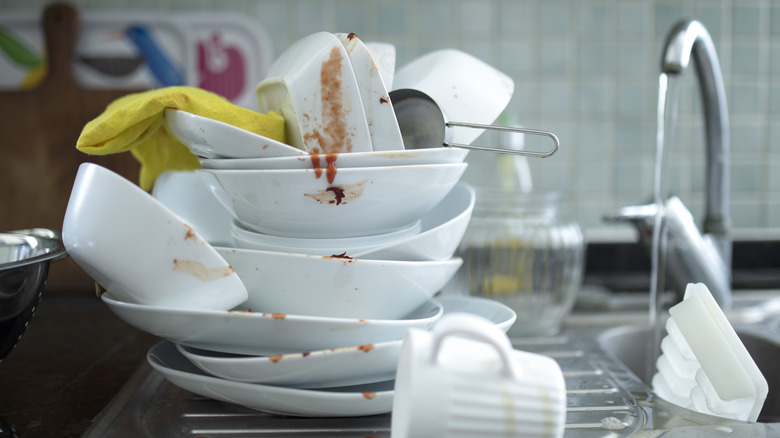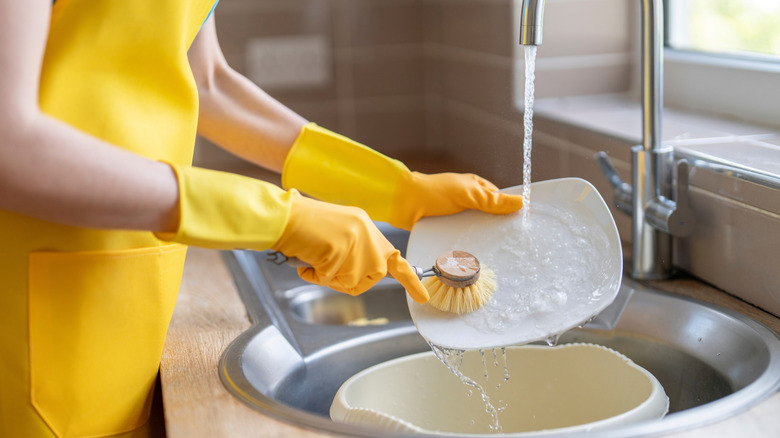Sponge Vs Scrub Brush: Only One Reigns Superior When It Comes To Washing Dishes
It happens to most of us at one point or another — you walk into your kitchen to do dishes, and you smell something funky. Funky like shoes you wore on a hike through a swamp. It's your sponge. You've tried using a caddy, sponges made from different materials, and even lemon juice to sanitize it, but after a while, it still ends up nasty and gross. And there's no way you're going to use it to wash your dishes. But what's the better option? Scrub brushes. The superior dishwashing tool is absolutely a scrub brush. Not only can a scrub brush get off crusty food, but it has less risk of harboring dangerous bacteria, mold, or yeast.
By the number of videos and articles online about how to keep your kitchen sponges clean, it's apparent that it's a common problem. The main issue is that a sponge is the perfect home for bacteria, yeast, and mold to grow. They are often warm, wet, and filled with food particles. It's also easier to cross-contaminate surfaces if you're using a sponge in your kitchen. Even using sanitation hacks like microwaving, soaking in lemon juice or bleach, or running it through the dishwasher aren't 100% effective. While the microwave and dishwasher are superior sanitation methods, you would need to sanitize your sponge daily to be sure you weren't contaminating the surface of your dishes. The better option is a scrub brush — not only is it better at getting your dishes clean, but it is a lot more sanitary.
Why a scrub brush is better for washing dishes
The kitchen is one of the dirtiest places in the home when it comes to germs, right up there with the bathroom. That's why it's so important to take food handling and safety seriously. Try using a UV light sometime to see just how clean your kitchen is. On second thought, you might not want to do that if you get grossed out easily.
Washing your dishes is one of the areas where choosing the right cleaning tool is vital to ensure there isn't any cross-contamination happening. Not only can a scrub brush get into the corners of baking dishes, clean glasses well, and scrub pots and pans better than a sponge, but it is also easier to keep sanitary. You can also easily spot food stuck in your brush, whereas a sponge can hide all kinds of nastiness in its crevices.
To keep the safety and effectiveness of your scrub brush intact, you should only use it to clean your dishes. It's a good idea to designate one brush for dishwashing only. Store your scrub brush in a caddy with drainage, upright so it dries thoroughly after each use. This is one of the biggest benefits of a brush over a sponge — the fact that it dries faster ensures it is less likely to harbor germs. It's still important to wash your brush after every use — to make sure there aren't any food particles stuck between the bristles. You should also replace your brush somewhat frequently, about every four weeks.

